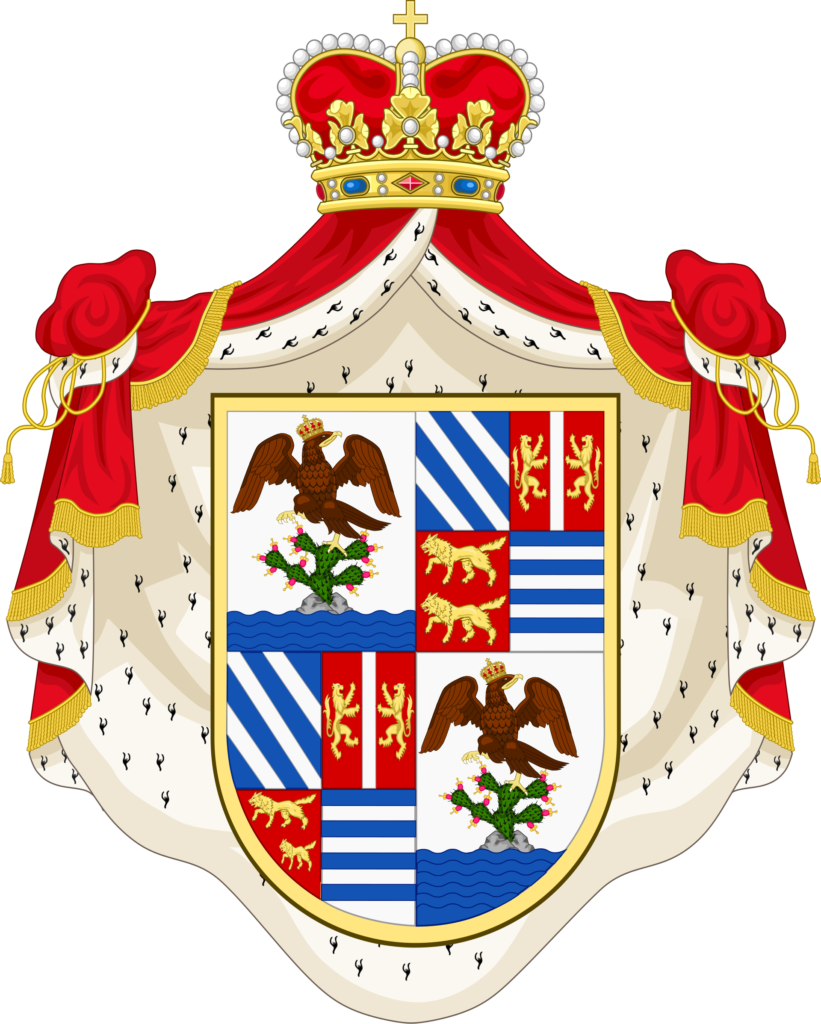


The Emperor Maximilian had adopted Don Salvador as co heir along with his cousin Don Augustin in September 1865.
Don Salvador de Iturbide, Prince of Mexico, was born at Mexico City the son of the Emperor Augustin I’s 8th child and third son Don Salvador by his wife Doña Rosario de Marzan y Guisasola. Don Salvador was adopted and created joint heir (or second in line) along with his cousin Don Augustin by the Emperor Maximilian in 1865.

Following the fall of the second Empire, Don Salvador remained in Europe. He was educated at the college of St. Barbe in Paris. After the completion of his studies he moved to Vienna and from there petitioned the Emperor Franz Josef for a pension that he deemed was due him as the adopted son and heir of the Emperor Franz Josef’s murdered brother Maximilian.
Whilst in Vienna he was befriended by the very rich Hungarian Baron Gyula Gaspar Mikos de Tarrodhaza who had just returned from a long journey through South America. Baron Gyula Gaspar was a great South Americaphile and was hoping to obtain various letters of introduction from Don Salvador for his next trip to Argentina, Chile and Peru.
The Baron’s brother Baron Johann Mikos was already know to Don Salvador as he had served in the Imperial Mexican Army as a volunteer and so it was that Don Salvador was invited to the Mikos family’s castle and estate in Mikos Szeplak.
Here Don Salvador was introduced to the Baron’s sister, the Baroness Gizella. The introduction turned to romance and on the 21st of June 1871 Don Salvador and Baroness Gizela were married at Mikos castle in Hungary. The best man at the wedding was Don Salvador’s closest friend the Baron Ferdinand Tunkl von Aschbrunn and Hohenstadt whose son latter married his daughter.
Three daughters we born of this union. Following their marriage Don Salvador and Doña Gizela lived at Mikos castle, which they rented from Baron Johann Mikos. Later however Baron Johan, who had the reputation of being a bit eccentric, he had founded a society and magazine dedicated to spiritualism, decided to sell his castle and estate without mentioning this fact to Don Salvador. Don Salvador took offence and moved his family to Venice where they rented a palazzo from Count Zeno on the Canale Grande.
Don Salvador and Doña Gizela became leading figures in Venetian society. Don Salvador became close friends with Don Carlos (VII) the Duke of Madrid and Carlist pretendant to the throne of Spain. Don Carlos awarded both Don Salvador and Doña Gizela the personal order of Carlos. In an article in the New York Times about Venetian Society, Don Salvador was referred to by the author as the “handsomest man in Venice”.
A large correspondence between Don Carlos and Don Salvador ensued most of which has survived and is still in the Iturbide private family archives.
Don Salvador was an indifatiguable traveller who visited most of Europe’s major cities. When not travelling or socialising he pursued his claim for restitution against the then government of Mexico. He was awarded a pension by the Emperor Franz Josef but regularly petitioned to have this increased.
In February 1895 whilst visiting Ajaccio in Corsica he became ill and died of a ruptured appendix aged 45. His remains were returned to Venice and he is buried on the island of San Michele in Venice.
His widow Doña Gizela remained in Venice where she made the acquaintance of Count Emil Jenison-Walworth. On 14 May 1900 they were married at Paddington in London. The Jenison-Walworth’s were an ancient noble family from County Durham and appear in the doomsday book. They lost most of their estates at the time of the reformation. In the 18th century the Jenison-Walworth family emigrated to Germany and were subsequently elevated to the rank of count. Count Emil Jenison-Walworth died at Nice in 1910 and his wife remained in France until 1918 whereupon she returned to Austria and died in a nursing home in Graz in 1921.